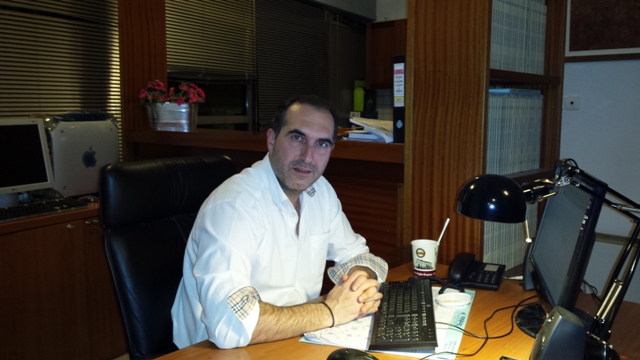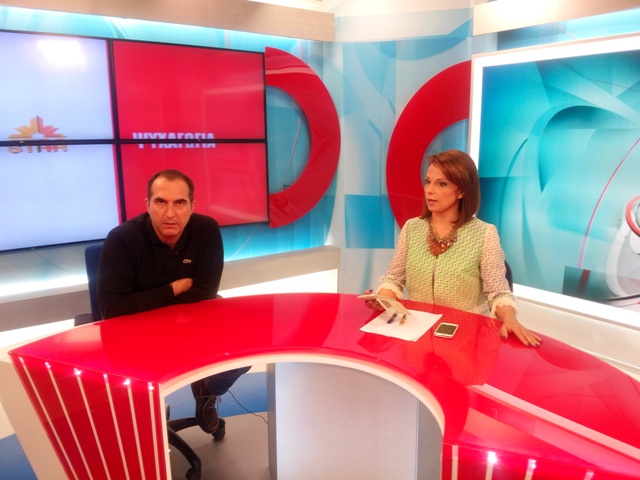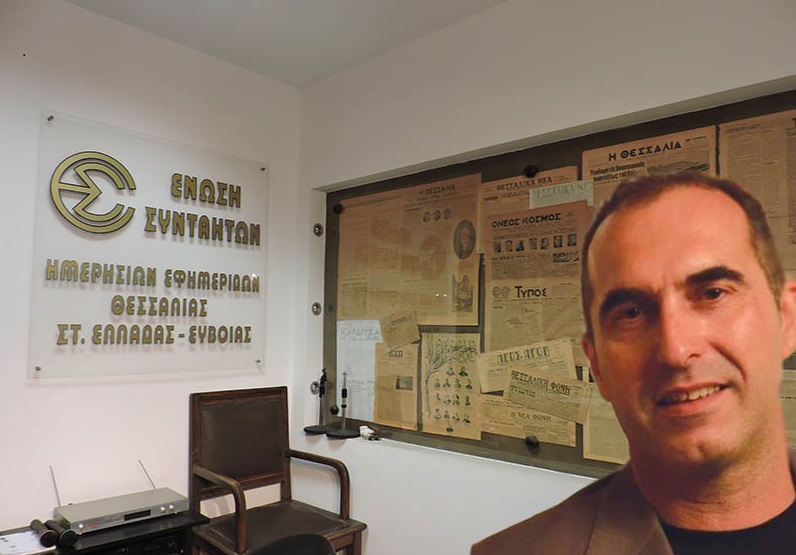One can only imagine the feeling of satisfaction and vindication that Greek journalist Dimitris Hortargias must have felt on Dec. 22, 2015, when lawmakers overwhelmingly approved critical reforms to Greece’s Press Law, widely known then as the “press killer”.
“All I was thinking on that day was that no other colleague of mine will have to suffer the same nightmare that I went through,” Hortargias said in a recent interview with the International Press Institute (IPI).
His nightmare started in June 2000 while he was working as a criminal justice beat reporter for the local newspaper Proti in Volos in the central Greek region of Magnisia. Hortargias at the time wrote a series of articles regarding the prosecution of a local sales representative for illegal money lending based on charges brought by a local businessman.
The sales representative was detained for four months and released after paying a bail of 80 million drachmas (approx. €235,000). After his release, he reached a financial settlement with the businessman and the prosecution was withdrawn.
“In my articles I followed every little detail of this case, stating all the facts about the conviction, and, of course, about the release of the defendant,” Hortargias said.
Time went by and Hortargias forgot about the case. But that changed in May 2006, when the sales representative filed suit against Hortargias, his editor and three other journalists for defamation under the Press Law – six years after the case had been settled. The sales representative argued that his honour and reputation had been deliberately smeared.
“He was asking from me and my editor €3 million in compensation,” Hortargias recounted. “The amount was crazy. I really believed that this was a bad joke and that it would end quickly.”
Long and expensive ordeal
However, he had no idea that this was just the beginning of a very long and very expensive ordeal.
The Court of Volos rejected the lawsuit, but the sales representative appealed to the Larisa Court of Appeals. There, a panel of judges overturned the preliminary decision of the lower court and ordered Hortargias pay €20,000 in damages.
The Court of Appeals accepted Hortargias’ assertion that he did not know that the accusations against the sales representative were false. But the Court nevertheless decided that the journalist’s purpose had been to insult the plaintiff. Greece’s Supreme Court later allowed the ruling to stand.
Hortagias’ lawyer, Thanasis Harmanis, told IPI in an interview that “there are some things that need to be clarified regarding this in many ways unique and peculiar case”.
He explained: “After the sales representative reached an agreement with the plaintiff back in 2000, all the charges against him were withdrawn. So although Hortargias was writing the truth from the beginning, the withdrawal of the charges changed the whole story. The sales representative argued that all of the articles were false and were aiming at destroying his reputation.
“If the plaintiff [ed. the local businessman] had insisted, then perhaps we wouldn’t be talking about this case at all. Who knows…?”
Together with the legal expenses, Hortargias had to pay €30,000.
“Needless to say, I was shocked by the decision and by the amount of money I had to pay,” he said. “The plaintiff also threatened to auction a house that my father had left me. So I had no other solution but to start paying this huge amount. I really wanted to go to the European Court of Human Rights but I couldn’t pay any more money. The [appeal to the] Supreme Court alone cost me €2,500.”
Self-censorship

Dimitris Hortargias. Photo courtesy Dimitris Hortargias.
Fortunately, Hortargias received full financial support from his regional journalistic union, the Union of Editors of Daily Newspapers of Thessaly, Central Greece and Evoia.
“They gave me a loan that helped me a lot,” he noted. “If it hadn’t been for my union, honestly, I have no idea if I would have survived this economic exhaustion.”
To his profound relief, Hortargias managed to pay back the loan in February. But if the financial consequences of the case have slowly subsided, the psychological effects still linger.
“I cannot lie,” Hortargias commented. “This story had a huge effect on me in many aspects. I have suffered moral and psychological damage, but the worst part of this story is that I started to question myself as a journalist. It was a kind of self-censorship.
“Every time I had to write an article, I would check again and again every aspect as if I couldn’t trust myself. I still cannot escape this feeling. It is something that I always have in mind.”
Changing the ‘press killer’

Dimitris Hortargias in an appearance on the Star television network. Photo courtesy Dimitris Hortargias.
The support Hortargias received from his union and from his colleagues helped him regain faith in himself. Last year, he was even elected president of the union.
Hortargias said his first order of business after his election was fighting to change the Press Law. The provisions of that law previously made it easy to sue journalists for defamation and demand disproportionate compensation, as in Hortargias’ case.
He sent letters and reports to the minister of justice and held personal meetings with politicians and lawyers trying to convince them of the need to strengthen protections for Greek journalists in defamation cases.
His efforts were not in vain. After significant pressure by journalistic unions and institutions, as well as by international groups such as IPI, the Greek Parliament in December 2015 finally approved a wide-ranging reform to the civil defamation provisions in the Press Law. The reform included the repeal of minimum compensation levels and the introduction of a pre-trial period during which plaintiffs must allow media outlets the opportunity to remedy the alleged harm done, among other measures.
“This was a huge step that managed to combat the ‘ease’ with which journalists could be taken to court for defamation,” Hortargias commented. “Journalists are now more protected than before and not subject to dangers concerning the payment of enormous sums of money, like I did.”
In particular, he pointed out that the new provision requiring all plaintiffs to allow the impugned media outlet 20 days to remedy any harm done prior to filing any legal claim, which then bars plaintiffs from pursuing damages in court if such harm is remedied, is something that could have saved him a lot of time and – most importantly – a lot of money.
“I can’t escape thinking what it would be like if my case had been judged under these new provisions,” he said, before pausing.
“Well, it doesn’t matter now. What is done is done. I am only grateful that from now on, there will be no other cases like this.”



